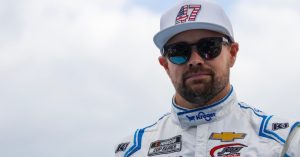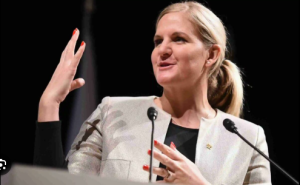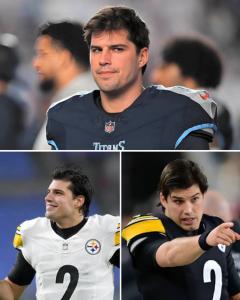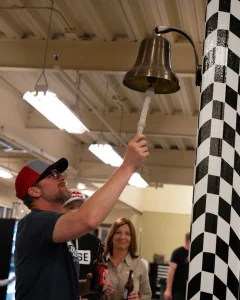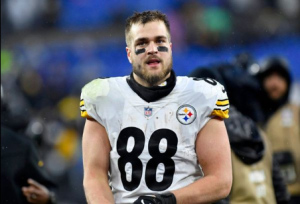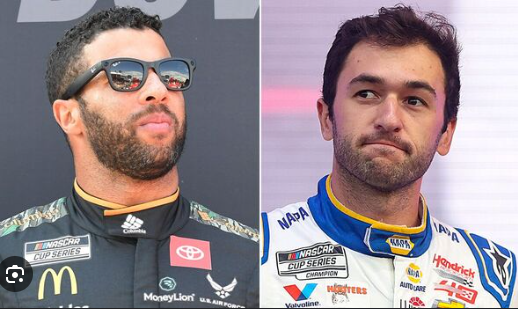
Chase Elliott for Once Echoes Bubba Wallace’s Concerns: A Shared Frustration at NASCAR Bowman….
Chase Elliott, the NASCAR star and fan favorite, has recently shared concerns that echo those of fellow driver Bubba Wallace, particularly regarding the way they are portrayed in the media. This growing sense of frustration within the NASCAR community highlights an ongoing issue that many athletes face: the struggle for fair and accurate representation in the media. Elliott’s comments have led to renewed discussions about the dynamics between NASCAR drivers and the broadcasters who shape their public image. Here’s a deeper dive into the shared frustrations of these two drivers and what this means for the future o

f media coverage in NASCAR.
The Shared Frustrations: Media Coverage and Misrepresentation
Both Chase Elliott and Bubba Wallace have openly voiced their frustrations about how they are covered by the media. While Elliott is a multi-time winner and former Cup Series champion, Wallace is known for his advocacy for racial equality in the sport, as well as his talent behind the wheel. Despite their different career trajectories, they share a common concern: the media’s portrayal of them often doesn’t fully reflect their character, work ethic, or the reality of their racing careers.
For Elliott, his complaints center on the way his performances are sometimes misrepresented, with focus often placed on controversy or negative aspects rather than his achievements on the track. Similarly, Bubba Wallace has spoken out about the challenges of being portrayed through a lens of race, and how the media’s focus on his activism sometimes overshadows his accomplishments as a driver.
Chase Elliott’s Echo of Wallace’s Concerns
Chase Elliott’s frustration has become more pronounced in recent years, and his statements echo some of the key points raised by Bubba Wallace. Both drivers have been critical of how the media can overemphasize certain narratives—whether it’s Elliott being painted as a “flawed” competitor or Wallace being reduced to a figure defined only by his race or activism. Elliott has pointed out that Fox Sports, in particular, has sometimes been guilty of reducing his complex story to moments that don’t fully encapsulate his abilities or contributions to the sport. This frustration is a sentiment that Wallace has expressed on multiple occasions, highlighting the need for a more nuanced approach to how athletes, especially in NASCAR, are portrayed.
The Impact of Media on Their Careers
For both drivers, the media’s portrayal has a significant impact on their careers. While Elliott enjoys widespread fan support and recognition for his skill on the track, he still faces moments when the media narrative around him doesn’t match the reality of his racing journey. For Wallace, the challenge lies in balancing his identity as a driver and as an advocate for social justice. The focus on his activism, while important, has sometimes overshadowed his accomplishments in the sport.
Both drivers understand the role media plays in shaping public perception, and while they’re grateful for the platform it provides, they also acknowledge the frustrations that come with being constantly scrutinized. The issue isn’t just about personal grievances; it also reflects the broader challenges faced by athletes who are often misrepresented or boxed into one-dimensional narratives.
The Broader Conversation: NASCAR’s Need for Better Coverage
Elliott and Wallace’s comments bring to light a larger conversation within the NASCAR community: how can the media better represent drivers in a fair and balanced way? NASCAR, as a sport, is known for its close-knit relationships between drivers and fans, and many believe that this should translate into more comprehensive and accurate media coverage. Both Elliott and Wallace have the potential to be key figures in the sport’s future, but their stories deserve to be told with the depth and nuance they deserve.
This ongoing conversation underscores the need for broadcasters like Fox to evaluate their coverage and consider how they can present drivers more holistically, focusing not just on race outcomes, but on the full range of their contributions, challenges, and personal stories.
Moving Forward: The Need for Change
As Elliott continues to echo Wallace’s concerns, it’s clear that the issue isn’t just about individual frustrations but about a systemic challenge in how NASCAR drivers are portrayed by the media. Both drivers have significant followings, and their voices can help drive change in the way coverage is approached.
Moving forward, it will be crucial for NASCAR’s media partners to take these concerns seriously and work with drivers to ensure a more accurate, respectful, and multifaceted representation. By addressing these issues, NASCAR, its drivers, and its broadcasters can help foster a more positive environment for the sport and its athletes.
Conclusion: Fairness and Accuracy in Media Coverage
Chase Elliott’s recent remarks about the media echo those of Bubba Wallace, shedding light on a shared frustration that many athletes face in the public eye. Both drivers want to be portrayed as more than just the sum of controversial moments or race results; they want to be seen for their full range of talents, personalities, and contributions to NASCAR. As the sport continues to evolve, it is essential for the media to take a more thoughtful approach to coverage, ensuring that drivers like Elliott and Wallace are seen in a light that does justice to their careers and their complexities.
